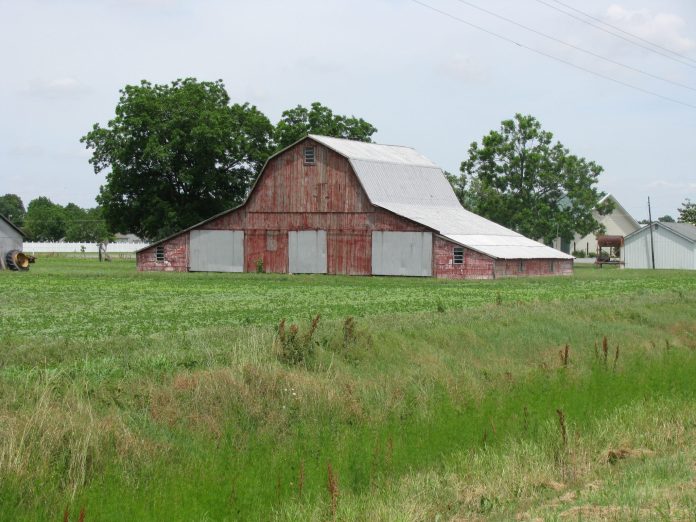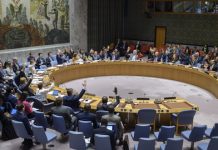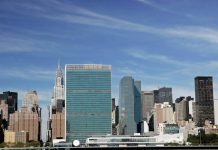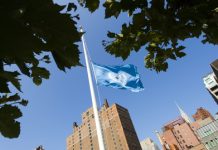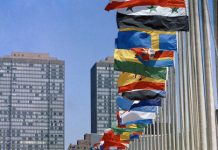Photo credit: DiasporaEngager (www.DiasporaEngager.com).
The racist upswell in the US looks “clearer from the outside,” says South African philosopher Nuraan Davids.
By George Yancy , Truthout —
Donald Trump’s war on diversity, equity, and inclusion (DEI) is not only an attack on the importance of education as a space for cultivating critical thought — it is also a direct attack on Black people.
Trump’s attacks are buttressed by his commitment to an authoritarian playbook that wallows in weaponizing differences against the backdrop of creating historical myths — in this case about the supremacy of whiteness.
However, we mustn’t forget that DEI can also function insidiously as a form of appeasement and deception. In other words, hegemonic whiteness, well before Trump, has never ceased to exist within this country. As such, whiteness accommodates differences but maintains its normative power. Within the context of education, this means that the appearance of difference (think here of university and college brochures that are spattered with faces of color) can exist alongside the power of whiteness and its control over what counts as knowledge or over whose history matters. Hence, as philosopher Nuraan Davids argues, “diversity is seen as an appendage to a pre-existing ethos, which remains undisturbed by how things ‘ought to be.’”
Davids is professor of philosophy of education and the chair of the Department of Education Policy Studies in the Faculty of Education at Stellenbosch University. Her most recent publications include Academic Citizenship, Identity, Knowledge, and Vulnerability (2023); and Out of Place: An Autoethnography of Postcolonial Citizenship (2022). In this exclusive interview, Davids radically critiques authoritarian control over what should be a democratically functioning U.S. educational system and lays bare the perfunctory dimensions of DEI that preserve whiteness as normative, bringing in unique insights from abroad. The interview that follows has been lightly edited for clarity and length.
George Yancy: Your work has been important in terms of critiquing the ways in which concepts like “diversity” and “inclusion” actually function to conceal the continuing existence of structures of power (say, white supremacy). My point here is not to exempt Trump and the right wing from critique as they eliminate DEI and replace it with the myth of a “post-racial” and “meritocratic” U.S. I am concerned that DEI was never radical enough to begin with. Talk about how you understand the ways in which DEI can parade as a political and academic good while systems of hegemonic power continue to operate in universities.
Nuraan Davids: As much as DEI programs are needed in some instances, there are complexities and problems with DEI as a concept and program. Diversity is deployed as a collectivist and homogenous concept, inclusive of all differences, with scant regard for the differences within differences. In turn, inclusion exists in a dyadic relationship with exclusion; inclusion cannot be understood in the absence of exclusion. Both the concept and the idea of DEI programs are taken for granted, because most universities seem to think that the mere presence of these programs means that they are doing something. What the “something” is hardly matters, because the mere presence of policies and programs is deemed as a sufficient indicator of transformation (at least by those who design the policies and programs). Yet, in deliberately setting out to let some diversity in, others are inadvertently also kept out. This is because diversity is constructed as an anomaly, in need of management and regulation — incapable of naturally finding its place in the university. Instead, it can only be ushered in to a very low saturation point, because “too much” diversity will not only negate the need for DEI programs, but more importantly, also disturb the status quo.
The point is that DEI programs are not interested in diversifying university spaces; they are interested in letting in just enough diversity to create the impression of “doing something,” as a ready response to racism. I don’t believe that DEI programs have shifted beyond the strategic placement of certain bodies. I don’t think that most of these programs are accompanied by any conscious desire to unlearn certain patterns of behavior that have kept diversity at bay, or how to relearn how to be with others. Instead, diversity is seen as an appendage to a pre-existing ethos, which remains undisturbed by how things “ought to be.” So even when diverse bodies are let in, this is not a fully encompassing entry or participation. It’s a negotiation, underscored by an unarticulated code: “We’ve let you in, so be grateful.” The code reflects the agency of the “we,” so that the subjectivity of those “let in” are reminded of their “rightful” place.
Once in, diverse bodies know that to remain “let in,” they need to contain themselves: Don’t be too Black, too gay, or too Muslim; keep your way of life and living knowledge traditions to yourself. The moment diverse bodies renege on the unspoken code, by being too visible in their diversity — whether it’s in how they dress, speak, or by having a point of view — they and the knowledge they bring are viewed as a threat. So, there are a few questions worth asking: Have DEI programs made any difference in the thinking and functioning of higher education in the U.S.? Are DEI appointments or promotions privy to the same set of academic goods and freedom as those not burdened by a diverse marker? Is the knowledge carried by diverse identities conferred the same value as the golden standard embodied by white, male academics? The treatment of Nikole Hannah Jones, as just one example, suggests not.
Much can be said about Trump’s deeply troubling onslaught on education in the U.S., but it’s a mistake to think of Trump as a singular problem. The right-wing social imaginary is hardly as imaginary as we think. It’s thriving — whether in the U.S., in Modi’s India, or in the ruins of Gaza. If anything, it’s the liberal imaginary that’s buckling under the weight of its own pretense, which begins to explain why it has been so easy for Trump to upend the DEI programs and trample on the academic freedom of universities. The U.S. has been a democracy for a much longer period than my home, South Africa. It prides itself as the world’s greatest democracy, and every single one of its universities rides on that democracy and claims to be an inclusive space. Why does the need for DEI programs persist? Why has the very idea of DEI programs not jarred university leaders, managers, administrators, and academics into introspective reflections on their institutional cultures? If the U.S. and its universities are as liberal as they would like the rest of the world to think, then why, after two-and-a-half centuries, are they struggling to include diversity without the assistance of a program?
Like you, I certainly would not want to exempt Trump, but it just seems too easy to lump what is happening in the U.S. right now at the door of one individual. That door was opened for him — twice over — by most of the American people. And what he has done, as an elected president, is to stop the parade by being quite honest about the depth and strength of white normativity. And Trump has succeeded not only because of his own authoritarianism, but also because the majority of educational institutions in the U.S. still propagate white normativity. And until this normativity is confronted, unapologetically, diversity will continue to be relegated to the margins of programs, waiting to be let in.
As a critical scholar and teacher in South Africa, as someone who sees what is happening from a distance, what are some of the horrors that you see taking place within the U.S. in terms of the Trump/right-wing attack on education? As you know, higher education demonstrates patterns of discursive closure, where the space for what is unpopular (dare I say freedom of thought itself) is placed under erasure. How do you see this erasure (which I take to be one of these horrors) taking place in the U.S.?
Let me start by saying that things always look clearer from the outside, and it’s always easier to make certain judgments when the full horror of what is happening in the U.S. does not bear down on one’s daily life and work. So, I say the following with sensitivity: I am incredibly surprised that there has not been a harder pushback from universities — students, academics — to Trump’s authoritarianism. I think of the protests that have been sparked in response to the clampdown on immigrants or the reverberating voices of Black Lives Matter, a movement which encouraged young people in South Africa to call out racism in their schools on social media, leading to an outpouring of rage against the systemic racism within the some of the country’s most elite schools. So, I cannot understand why similar kinds of protests have not erupted to preserve the integrity of what it means to be a university.
What Trump and his administration are doing far exceeds curricula, or a systematic repeal of discourses on critical race theory, gender, or systemic inequality. As someone who has endured apartheid’s systemic dehumanization and violence, and who understands the weaponization of knowledge and language, I see the crisis in higher education as an epistemological one. The U.S. is witnessing and living the flaring of the colonialist project. For those who might dismiss this claim, it is important to understand that colonialism does not only occur through a foreign occupation or the prohibition of a state formation; rather, colonialism also lives in the othering and denigration of others, their way of life and thought. Trump is seeking to (re)-invoke the hegemonic narratives of America’s past by simultaneously erasing the lived experiences of racialized America. By prohibiting books deemed as “divisive,” he is not only shutting down epistemological pluralism, critical thinking, or academic freedom. He is also not only delegitimizing certain kinds of knowledge. He is also proscribing the rights of all Americans to access and engage with certain kinds of knowledge. Importantly, the crisis being created here is neither limited to educational sites, nor is it only an educational crisis. The spillover onto American society is direct and inevitable, with Trump being unequivocally clear about the kind of society he wishes not to create, but to restore.
When citizens/students are not open to the diversity of knowledge that informs the living traditions of a pluralist and multicultural society, then it means that they will neither know about epistemological pluralism, nor how to engage with it. It also means that whatever they know would have been gained from echo chambers, which might perpetuate stereotypes, biases and blatant mistruths, all of which contribute to a society of mistrust, fear, and antagonism. What Trump is effectively doing is halting the cultivation of a pluralist and multicultural society. He is saying that in the U.S., it is sufficient to only have knowledge of white normativity. Any knowledge that detracts from this must be stopped, so that young people do not learn about that which is disagreeable to white ideological norms.
In the U.S., we are witnessing an attack on the democratic life of universities, colleges, and schools. As someone who passionately writes about, teaches about, and fights for the democratizing of universities in South Africa, what critical interventions do you suggest to teachers and students here in the U.S. as we struggle with the attack on education?
I think it’s important to recognize that universities can never be sites of complacency of consensus. The very idea of a university is to recognize and cultivate spaces for competing truths, ideas, being, and acting. The university is fundamentally a place of struggle — open to different political and social imaginaries and interests, and cognizant of its role in society. Teaching and learning, therefore, are certainly not meant to bring about comfort. Teaching ought to be provocative, and geared toward inviting curiosity about this world, others, and what we bring to this world. What I am proposing is not a critical intervention; it’s a reasonable realization and expectation that with knowledge comes responsibility.
So, my suggestions are critical, yet modest, if one considers that what I am proposing should be a natural part of what it means to be a teacher, academic, or researcher in higher education. Academics and students alike need to reclaim their (academic) freedom. They should not wait for it to be given or returned; they should simply lay claim to it, demand it! I see the presumption of academic freedom as akin to Jacques Rancière’s contention: Equality is a presupposition, an initial axiom — or it is nothing. Without academic freedom, the university is nothing.
I am sure that there are individuals or groups that are and have always been pushing back against attempts of censorship and prohibition in the U.S. But these voices need to be amplified in carefully planned movements and protests. Students played an immensely powerful role in the struggle against South Africa’s apartheid. I would go as far as saying that without their contribution, South Africa’s liberation might have been further delayed. They were unwavering in their commitment to liberation, even at the expense of education, because they understood that even if educated, they would still be without freedom. Freedom to think, question, and to pursue different kinds of knowledge evokes a critical consciousness, which equips us to call out injustices, whether in our immediate midst or elsewhere. Freedom turns us toward others, so that we understand our interconnection. Without freedom, regardless of how educated we are, we can neither defend ourselves nor others. Notably, students’ voices have not subsided in South Africa’s democracy; they have learned that democracy must be held accountable to its own ideals, and hence movements such as “fees must fall” and “Rhodes must fall,” which evolved into a transnational call for the decolonization of universities.
Crucially, the repression and authoritarianism being imposed in America right now is not an American problem. Right-wing authoritarianism is a global scourge; Trump is one player, and America is one country. It is time for American academics and students to look outward beyond their national borders to contexts that have endured much worse than what Americans are experiencing. There are no shortages of oppressive and repressive battlegrounds. More importantly, there are no shortages of epistemic resistance and values. It is important, therefore, for universities to actively forge and to learn from transnational collaborations and alliances, but this would require a shift in the mindset of how knowledge from others is viewed.
Within the South African context, you have written about trust and mistrust within pedagogical spaces. Without conflating what happens within South African pedagogical spaces and U.S. pedagogical spaces, please discuss the important dynamics of trust and mistrust. I ask for this reason: In the U.S., students and teachers who might normally feel “safe” naming the reality of systemic racism and white privilege are faced with the possibilities of serious draconian backlash. Under conditions of a Trumpian neo-fascist regime, how should students and teachers think about trust and mistrust?
Issues of trust and mistrust cut across contexts and educational systems. As much as our world has changed, advanced, and deteriorated, human nature remains the same. Most of us attach a common value to what it means to be good; we share a common bond in what it means to act with civility and trust. As human beings, we are inherently social; we co-exist with others; we foster relationships based on mutual regard, inclusion, belonging, and safety from harm. To trust someone is not only to believe in who they are, what they say and do; it also includes a belief that those who are worthy of our trust will not harm us, or act in ways that compromise our well-being. When we trust someone, we make ourselves vulnerable. Just as we trust parents to have the best interests of their children at heart, we trust teachers to act in ways that will nurture the development and progress of the child.
So, what happens when the political climate prohibits the acknowledgement of racism and white privilege — effectively forcing teachers into propagating a false narrative? How do teachers conscientize students about the normative ways of the world and its systemic racism? I think in this climate, issues of trust and mistrust become heightened. The role of the teacher, therefore, is not only to guide students in what they can trust, but also in what they should mistrust. The prohibition of a language that calls out racism and white normativity demands a reimagined language in which trust is foregrounded as an ethical encounter, based on mutual regard, compassion, and care. Concomitantly, students should be conscientized to their subjectivity as citizens — that is, they need to be made aware that they are neither neutral observers of their own citizenship and society, nor passive recipients of knowledge. Instead, they have agency and, hence, have the capacity to actively participate in the kind of society they wish to live in. While it might no longer be permissible to speak about critical race theory, for example, it becomes more important to think critically and questioningly about the world. And this includes shifting students into understanding the importance of mistrust.
This is not a call for cynicism. Rather, on the one hand, this is an argument for making young people aware of the fragility of democracy. On the other hand, it is to teach them that in authoritarian contexts, the state does not trust its own citizens to think for themselves. Independent and critical thinking are viewed as threats, and hence must be suppressed, or worse, punished. In this context, mistrust becomes a necessary socio-political response.
The ethical role of the teacher is crucial in this regard — it is up to her to cultivate safe spaces in which students can learn from one another. As one pedagogical example, sharing stories offers a powerful medium through which to subvert white normativity as the only valid ways of knowing, as well as working against the colonial epistemic frame to subvert and recreate possibilities and spaces for resistance. Sharing stories also implies a shift in how teachers come into the presence of their teaching — specifically, by recognizing that students are not only recipients of knowledge; they are also carriers of knowledge. The pedagogical conscientization of young people, therefore, does not only have to come from the teacher. By proving herself as trustworthy, it is possible for the teacher to cultivate classrooms where students feel safe to share their stories, and hence, offer insights and experiences beyond the formal (regulated) curriculum.
Source: Truthout. This article is licensed under Creative Commons (CC BY-NC-ND 4.0)
Featured image: Protesters face off with police outside of a federal building in downtown Los Angeles for an anti-Trump “No Kings Day” demonstration in a city that has been the focus of protests against Trump’s immigration raids on June 14, 2025, in Los Angeles, California. (Spencer Platt, Getty)
George Yancy is the Samuel Candler Dobbs professor of philosophy at Emory University and a Montgomery fellow at Dartmouth College. He is also the University of Pennsylvania’s inaugural fellow in the Provost’s Distinguished Faculty Fellowship Program (2019-2020 academic year). He is the author, editor and co-editor of over 25 books, including Black Bodies, White Gazes; Look, A White; Backlash: What Happens When We Talk Honestly about Racism in America; and Across Black Spaces: Essays and Interviews from an American Philosopher published by Rowman & Littlefield in 2020. His most recent books include a collection of critical interviews entitled, Until Our Lungs Give Out: Conversations on Race, Justice, and the Future (Rowman & Littlefield, 2023), and a coedited book (with philosopher Bill Bywater) entitled, In Sheep’s Clothing: The Idolatry of White Christian Nationalism (Roman & Littlefield, 2024).
Source of original article: The Institute of the Black World 21st Century (ibw21.org).
The content of this article does not necessarily reflect the views or opinion of Global Diaspora News (www.GlobalDiasporaNews.com).
To submit your press release: (https://www.GlobalDiasporaNews.com/pr).
To advertise on Global Diaspora News: (www.GlobalDiasporaNews.com/ads).
Sign up to Global Diaspora News newsletter (https://www.GlobalDiasporaNews.com/newsletter/) to start receiving updates and opportunities directly in your email inbox for free.


